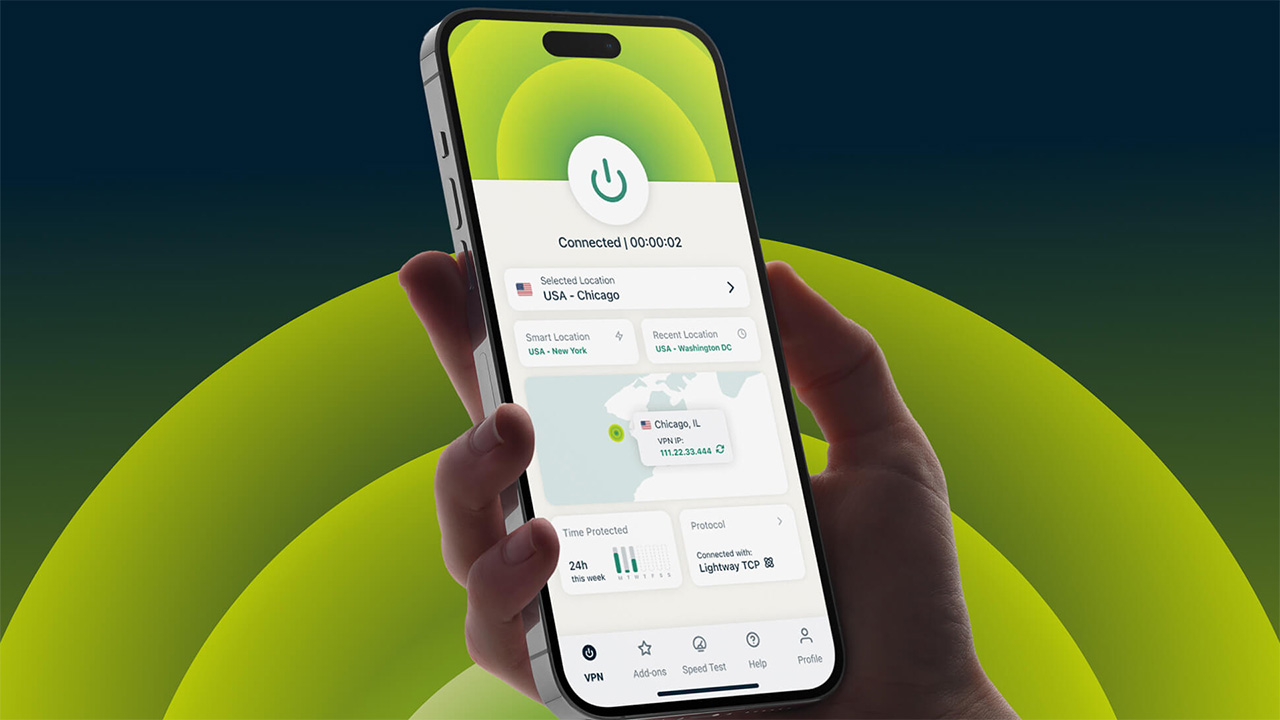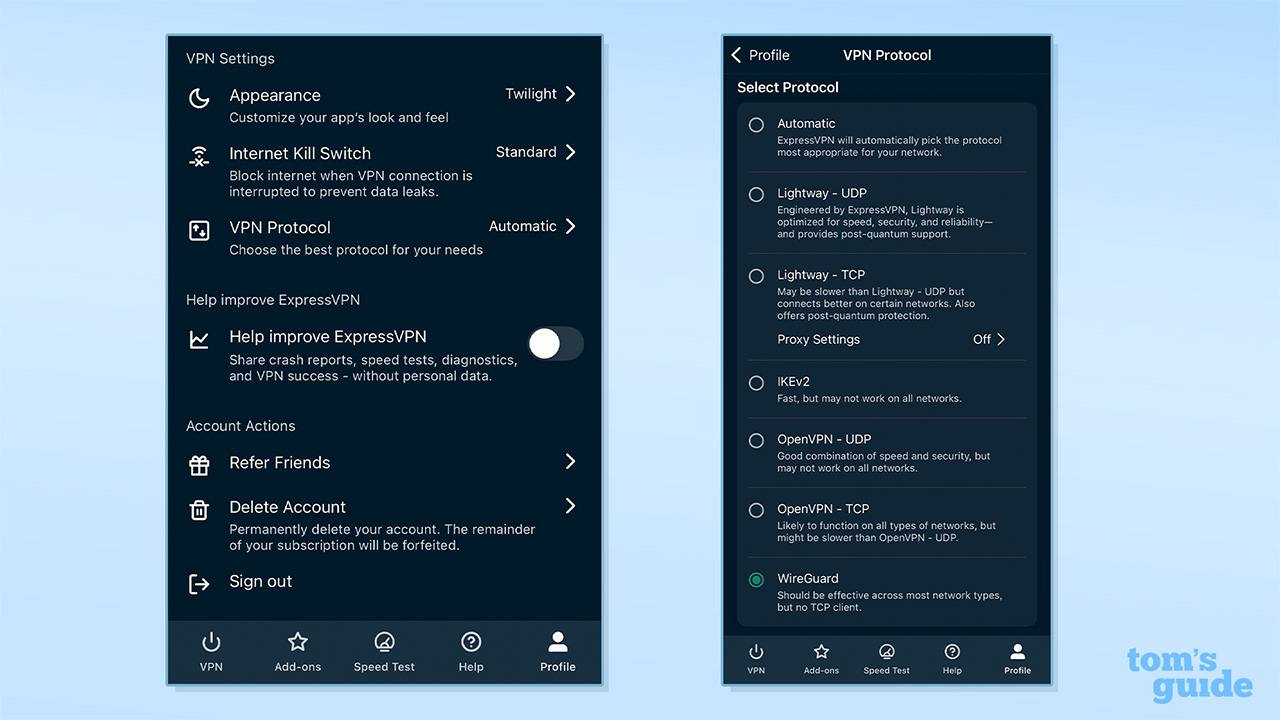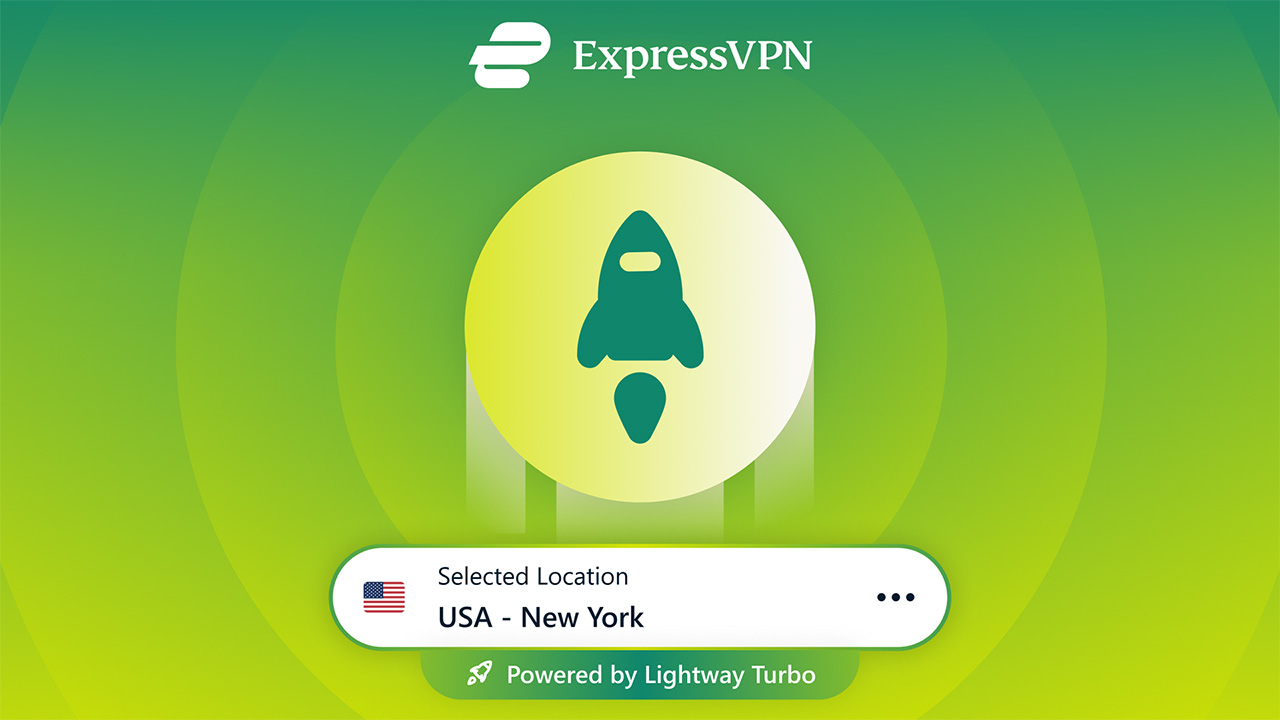ExpressVPN now supports the WireGuard protocol – and it's quantum secure
The provider is sharing its approach with the wider industry

Here at Tom’s Guide our expert editors are committed to bringing you the best news, reviews and guides to help you stay informed and ahead of the curve!
You are now subscribed
Your newsletter sign-up was successful
Want to add more newsletters?

Daily (Mon-Sun)
Tom's Guide Daily
Sign up to get the latest updates on all of your favorite content! From cutting-edge tech news and the hottest streaming buzz to unbeatable deals on the best products and in-depth reviews, we’ve got you covered.

Weekly on Thursday
Tom's AI Guide
Be AI savvy with your weekly newsletter summing up all the biggest AI news you need to know. Plus, analysis from our AI editor and tips on how to use the latest AI tools!

Weekly on Friday
Tom's iGuide
Unlock the vast world of Apple news straight to your inbox. With coverage on everything from exciting product launches to essential software updates, this is your go-to source for the latest updates on all the best Apple content.

Weekly on Monday
Tom's Streaming Guide
Our weekly newsletter is expertly crafted to immerse you in the world of streaming. Stay updated on the latest releases and our top recommendations across your favorite streaming platforms.
Join the club
Get full access to premium articles, exclusive features and a growing list of member rewards.
ExpressVPN has added WireGuard to its list of supported protocols and has launched it with post-quantum encryption protection already implemented.
Previously, ExpressVPN has been one of the only providers on our best VPN list not to support the popular WireGuard encryption protocol. Instead, it primarily relied on its proprietary protocol, Lightway.
But WireGuard has now come to ExpressVPN and it utilises the new post-quantum encryption standard, ML-KEM.
It's available now on iOS, Windows, and Android VPN apps, with macOS support coming soon.
The new industry default
Post-quantum is the level of encryption needed to protect against attacks from quantum computers. The day these computer can break current encryption standards is known as Q-Day. Although it might not occur for a few more years, many VPN providers are adopting post-quantum encryption now.
ML-KEM has been one of the post-quantum industry standards for over a year and, in a blog post, ExpressVPN said this release is a "call to action for the rest of the industry." It added that "post-quantum protections are essential, and they’re possible to implement now."

WireGuard was a revolutionary protocol and was seen as faster and more streamlined than the old-favorite OpenVPN. But WireGuard doesn't support post-quantum encryption by default – WireGuard themselves admit that – and ExpressVPN has addressed this gap.
According to ExpressVPN, its version "adds post-quantum encryption, ephemeral credentials, dynamic IPs, and short-lived authentication tokens."
ExpressVPN wants to help the VPN industry adopt post-quantum protection and has released a white paper detailing how it built its scalable WireGuard implementation, which doesn't modify WireGuard itself.
ExpressVPN's Chief Research Officer, Pete Membrey said: "Post-quantum threats aren’t theoretical. They’re already here. Adversaries can harvest encrypted traffic today and decrypt it later."
"Everyone’s shipping WireGuard, but few are doing it with a proper appreciation for the post-quantum issues. We built a version that actually holds up, and we’ve published the instruction manual along with it."
Post-quantum WireGuard is live now for Windows, Android, and iOS VPN users, with macOS coming later.

To access the protocol on your phone, click the Profile tab at the bottom of your screen and head to VPN Protocol under the VPN Settings section. You can then select WireGuard but advanced protections – ad, tracker, and malicious site blockers – must be disabled.
For Windows VPN users, click the three lines in the top left of your ExpressVPN screen and select Options. Go to Protocol and select WireGuard.
If you can't see the WireGuard option, ensure your ExpressVPN app is up to date.
How ExpressVPN upgraded WireGuard
Every session starts with a post-quantum key exchange and each session uses short-lived keys, along with a fresh internal IP. There are no persistent identifiers or reused credentials and this makes it much harder to track users and activity.
There's no native user authentication built into WireGuard, so ExpressVPN built a lightweight system that verifies users with short-loved access tokens.
All of ExpressVPN's protocols run on its TrustedServer network. This means servers are RAM-only and all data is wiped when they reboot – reportedly once a week. Therefore no data is stored long-term and this increases user safety and privacy.
As mentioned, these protections were added without modifying WireGuard itself. ExpressVPN describes how its architecture "wraps around the base design" and its white paper shares each step so other VPN providers can do the same.
ExpressVPN has also introduced a new manual HTTPS proxy support that runs connections over Lightway TCP. Proxies are not a replacement for VPNs, but it's designed for advanced users to use as a backup option when VPN traffic is throttled, blocked, or restricted.
Lightway remains ExpressVPN's default protocol
WireGuard was still in early development when ExpressVPN first reviewed and as a result the provider decided to build its Lightway protocol.
Lightway is still ExpressVPN's primary protocol and WireGuard's introduction simply gives users more options.

ExpressVPN has recently announced a partnership with BitRipple to integrate its LT3 acceleration into Lightway. This aims to boost Lightway's speeds and connection stability.
Lightway's speeds traditionally made ExpressVPN one of the fastest VPNs. We previously saw speeds of 898 Mpbs in our testing. However, our most recent test of Lightway's speeds saw it hover around 350 Mbps – a rather disappointing result.
However, ExpressVPN boasts a Lightway Turbo option and we recorded speeds of 1,617 Mbps on a 10 GB line – faster than any other VPN we tested. The only downside to this is Lightway Turbo is currently only available on Windows. Despite this, for everyday use and streaming, you shouldn't have a problem with ExpressVPN's speeds.
We test and review VPN services in the context of legal recreational uses. For example: 1. Accessing a service from another country (subject to the terms and conditions of that service). 2. Protecting your online security and strengthening your online privacy when abroad. We do not support or condone the illegal or malicious use of VPN services. Consuming pirated content that is paid-for is neither endorsed nor approved by Future Publishing.

George is a Staff Writer at Tom's Guide, covering VPN, privacy, and cybersecurity news. He is especially interested in digital rights and censorship, and its interplay with politics. Outside of work, George is passionate about music, Star Wars, and Karate.
You must confirm your public display name before commenting
Please logout and then login again, you will then be prompted to enter your display name.
 Club Benefits
Club Benefits










